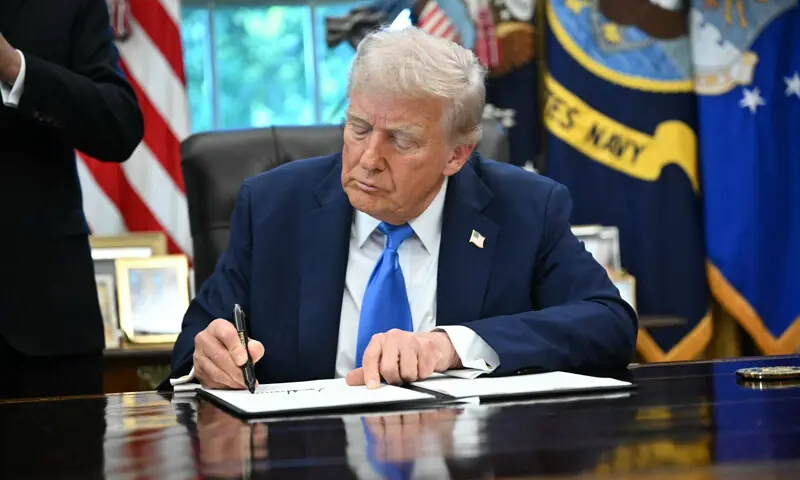Dr Bilawal Kamran
American President Donald Trump’s 20-point “grand Gaza plan” has been hailed by its author as a blueprint for “eternal peace” in the Middle East. Yet beneath the rhetoric, the proposal offers little hope for a just resolution of the Arab-Israeli conflict. Rather than balancing rights and responsibilities, the plan shields Israel from accountability while placing the burden of peace squarely on the shoulders of the Palestinians.
At first glance, the plan promises two faint positives: a temporary cessation of hostilities and the resumption of aid to the devastated Gaza Strip. But even these limited benefits are conditional, hinging on Hamas’s complete surrender. President Trump has given the Palestinian movement just a few days to accept or reject the offer, effectively coercing them into disarmament while excluding them from Gaza’s future. Whether one supports or opposes Hamas, the fundamental issue remains: it is for the Palestinian people—not external powers—to decide who represents them in their national politics.
The plan also proposes a so-called “Board of Peace” to govern Gaza after a ceasefire, drawing uncomfortable parallels with colonial experiments of the past. Figures like Donald Trump and former British prime minister Tony Blair would act as custodians of Gaza until Palestinians are deemed “fit” to rule themselves. This approach reeks of paternalism, undermining Palestinian sovereignty and echoing the discredited Mandate System of the early 20th century.
Equally troubling is the silence on Israel’s accountability. The plan does not acknowledge the genocide that has ravaged Gaza, nor does it commit to protecting Palestinian civilians from future assaults. On the contrary, Trump reassures Tel Aviv that if Hamas refuses the terms, Israel has a free hand to “do what you have to do.” This blank cheque threatens to escalate the violence further and emboldens Israel to continue its policy of collective punishment. The document also sidesteps the issue of illegal settlements in the West Bank, allowing Israel to expand territorial control unchecked.
For Pakistan, the plan presents a moral and diplomatic test. Prime Minister Shehbaz Sharif was among Muslim leaders who engaged with Trump on the proposal and publicly praised it. Yet within Pakistan, the response has been overwhelmingly critical. Political parties across the spectrum, civil society, and ordinary citizens alike view the plan as an instrument of surrender that legitimises Israeli dominance while stripping Palestinians of their rights.
Reports of possible “peacekeeping” deployments to Gaza involving Pakistan and other states have also surfaced. Such suggestions warrant urgent debate. No government can or should commit Pakistani forces without parliamentary approval, particularly when the plan itself contradicts Pakistan’s long-standing principled stance: unwavering support for Palestinian self-determination. To send troops under the framework of a plan perceived as biased would erode Pakistan’s credibility in the Muslim world and betray its historic position.
Ultimately, the Trump plan does not represent a path to genuine peace but rather a framework of surrender. By sidelining Palestinian agency, absolving Israel of responsibility, and imposing external guardianship, it risks entrenching conflict rather than resolving it. True peace requires justice—an end to occupation, accountability for war crimes, and recognition of the Palestinians’ right to determine their own future. Anything less is not peace but submission.
















